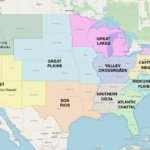Our friends mean the world to us. We spend years developing social confidence, conversational skills, and general empathy to connect with others. From the smallest interactions, like sharing a funny meme or text, to the biggest emotional experiences, like consoling one another during a loss or breakup, having good pals makes things easier. As with all relationships, though, these friendships require real effort and work. Without careful consideration of emotions and needs, it’s possible to end up being manipulated, lied to, let down, or traumatized by toxic relationships. By exercising risk management, we can set appropriate boundaries and ensure everyone involved is receiving – and giving – what is needed.
The Science of Friendship
Maintaining relationships is a huge part of our everyday life. Gallup polls show that 98 percent of Americans report having at least one close friend, with the average number being around 9 people. Certainly, those experiences can improve our mental wellness, as a study published by Madeline R. Vann for Everyday Health showed that those who socialize happily with friends see a general lift in mood. The same study also showed that individuals with strong friend circles had more self-confidence and experienced shorter bouts of grief or depression.
These friendships can also have a positive impact on our physical health. Vann’s study found evidence that those with healthy and positive friendships aged more successfully. Another study by sociologist Yang Claire Yang found those with good pals had better health according to biomarkers like blood pressure, BMI, and inflammation levels. The study also found the opposite to be true, that those with weak social ties had higher waistlines and blood pressure readings. This indicates that having poorly managed or negative friendships could impact your life in more ways than you know.
Managing Healthy Friendships
Risk management with friends means fostering good conditions. We all deserve close, meaningful friendships. These connections work best when they are enriching and mutual. There should not be trends of one person demanding more emotional labor than they would give out. In the same sense, we cannot insist a friend drop everything and pay attention because we need it. In order to eliminate the risk of a negative friendship, there are some important factors to consider.
- Communication is Key
Being a considerate, good friend starts with strong communication. We trust our friends because they’re open and honest, and they encourage us to do the same. Having those hilarious or moving conversations that last into the night make us feel great, connected, and understood. Not all communication comes easy, and it’s OK to identify when those breakdowns occur. Behavior analyst Stephanie Michele wrote in her article “Communication Boosters: Relationship Improvement Exercises” that practicing 15-30 minutes of structured conversation can greatly improve a friendship. Such conversation topics might include your best childhood memory or your most embarrassing fear. The point here is to actively listen and practice mirroring, in which you seek to validate the speaker and demonstrate you’ve understood the right information. Overall, communication helps us to avoid risk by ensuring both parties are speaking their minds.
- Avoid Unnecessary Judgement and Manipulation
In the same way that communication makes us feel heard, friendships make us feel safe. So often we’re plagued by self-doubt and a lack of confidence. Talking things out with friends tells us that we’re not alone, and that our feelings are normal. However, if you or a friend is being unnecessarily judgmental, this can lead to the opposite. Toxic friendships are often defined by talking behind one another’s backs or utilizing tools of manipulation.
One form of manipulation that has gained visibility is that of gaslighting. When gaslighting, one individual will use psychological tricks to make another question their own perception. Statements like “you’re crazy,” or “no one likes you,” are hurled between individuals in attempt to isolate the other. The friend may re-tell different accounts of experiences or tell you that they are the only one who cares about you. If you’re noticing experiences like this, it might be time to leave that person behind for your own well-being.
- Establish and Respect Boundaries
We think of best friends as the people to who we can tell anything. They’re our partners in crime, our ride or dies, our best friends forever. Everyone has their own emotional needs and limits, and it’s important to respect those. As with all elements of a strong friendship, this one begins with communication. Here are some examples of healthy boundaries in a friendship.
- Learn to Say ‘No’
Engaging in unwanted activities is only going to cause resentment. Both parties should feel comfortable saying no if they’re not up for hanging out. In a well-defined relationship, there is no pushback or attempts to persuade anyone; feelings and needs are wholly respected.
- Define Appropriate Face-to-Face Time
Sometimes we all need to be alone, and our friends should accept that. If a friend tells you that they need to hang out alone, or even with someone else that evening, it shouldn’t be taken as an attack. Rather, this is just a statement of their boundaries, and it should be taken to heart. For those who have social anxiety or feel introverted, it might be helpful to establish times when you will hang out versus when they will see others.
- Stay Strong in Your Convictions
Most importantly, your boundaries matter. If you feel a friend is trying to convince you that your boundaries are too much, that’s a red flag. Always be confident in expressing your truths.
Friendships and social interactions are one of the most important aspects of our lives. While we can’t choose our family, you can choose your friends, and risk management plays a big role in the curation of healthy relationships. By communicating, refusing to participate in manipulative behavior, and setting boundaries, this could be the start (or continuation) of a beautiful friendship.





